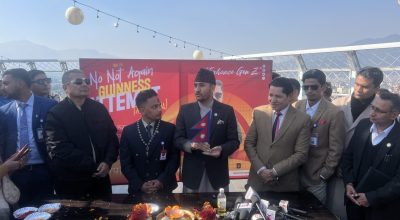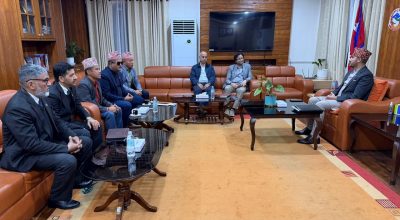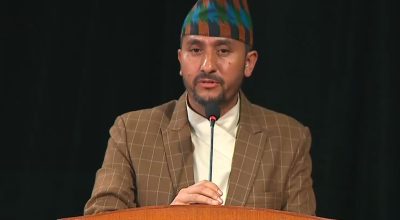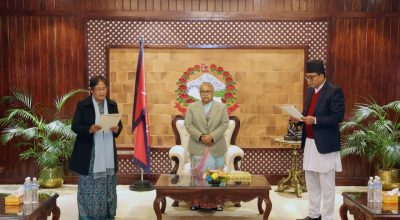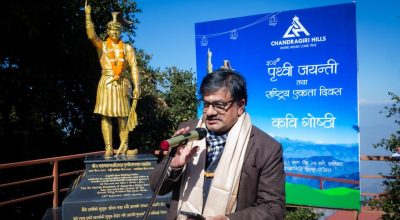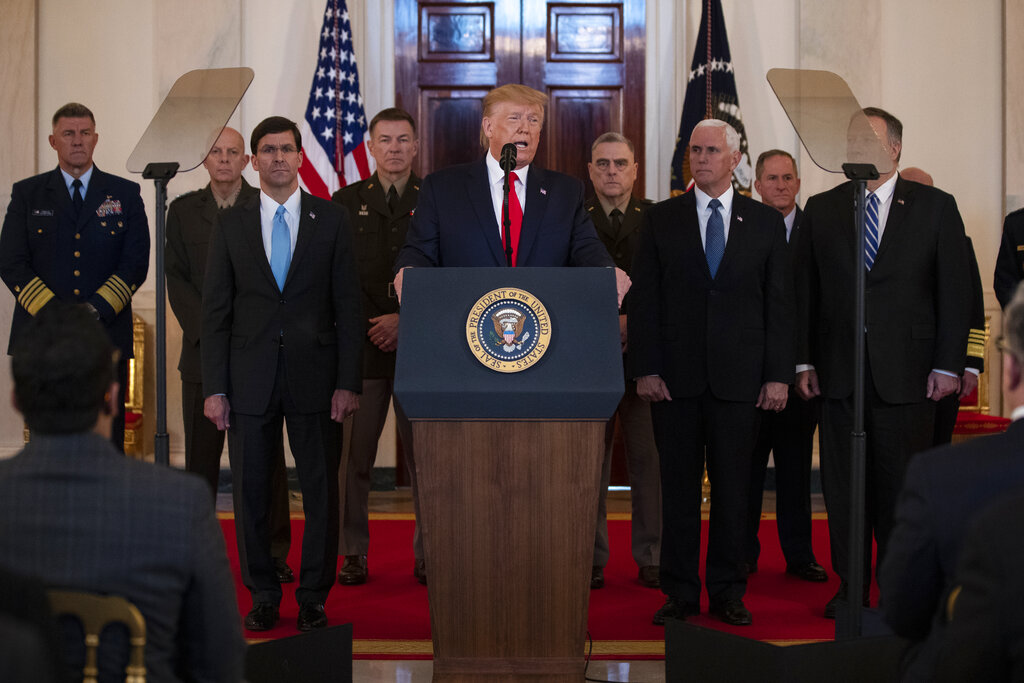
BAGHDAD (AP) — Iraq’s caretaker prime minister asked the U.S. secretary of state to start working out a road map for an American troop withdrawal from Iraq, his office said Friday, signaling his insistence on ending the U.S. military presence despite recent moves to de-escalate tensions between Iran and the U.S.
Adel Abdul-Mahdi made the request in a telephone call with Secretary of State Mike Pompeo on Thursday night, his office said in a statement. He also told Pompeo that recent U.S. strikes in Iraq were an unacceptable breach of Iraqi sovereignty and a violation of the two countries’ security agreements.
The Iraqi leader asked Pompeo to “send delegates to Iraq to prepare a mechanism to carry out the parliament’s resolution regarding the withdrawal of foreign troops from Iraq,” according to the statement.
“The prime minister said American forces had entered Iraq and drones are flying in its airspace without permission from Iraqi authorities and this was a violation of the bilateral agreements,” the statement added.
Iraqi lawmakers passed a resolution to oust U.S. troops last Sunday, following the U.S. drone strike that killed top Iranian general Qassem Soleimani and senior Iraqi militia commander Abu Mahdi al-Muhandis at Baghdad’s airport. The non-binding vote put the responsibility on the government to formally request a withdrawal. Abdul-Mahdi, addressing lawmakers at the time, called for “urgent measures” to ensure the removal of the troops.
Speaking to Pompeo, Abdul-Mahdi stopped short of requesting an immediate withdrawal and appeared to give the U.S. time to draw up a strategy and timeline for departure. Still, the comments suggested he was standing by the push for the American forces to go despite recent signals toward de-escalation between Tehran and Washington after Iran retaliated for Soleimani’s death with a barrage of missiles that hit two Iraqi bases where U.S. troops are based but caused no casualties.
There are some 5,200 U.S. troops in Iraq assisting and providing training to Iraqi security counter-parts to fight the Islamic State group. An American pullout could deeply set back efforts to crush remnants of the group amid concerns of a resurgence amid the political turmoil.
The U.S. State Department acknowledged that Pompeo had called Abdul-Mahdi but made no mention of U.S. troops in a readout of the call released late Thursday.
Spokesperson Morgan Ortagus said Pompeo reiterated the United States’ condemnation of the Iranian missile strikes on the two bases and underscored that President Donald Trump “has said the United States will do whatever it takes to protect the American and Iraqi people and defend our collective interests.”
Top American military officials including Gen. Mark Milley, chairman of the Joint Chiefs of Staff, and Defense Secretary Mark Esper have said there were no plans for the U.S. to withdraw from Iraq.
The push to remove the U.S. forces comes amid widespread Iraqi anger over being caught in the middle of fighting between Baghdad’s two closest allies. Abdul-Mahdi has said he rejects all all violations of Iraqi sovereignty, including both the Iranian and U.S. strikes.
Still the demand for withdrawal is not universal. Sunni and Kurdish lawmakers opposed the Parliament resolution. The Sunnis see the U.S. presence as a bulwark against domination by the majority Shiites and Iran, while the Kurdish security forces had benefited from American training and aid.
The latest escalation between Tehran and Washington on Iraqi soil was set off when a rocket attack blamed on the Iranian-backed militia group Kataeb Hezbollah, or Hezbollah Brigades, caused the death of an American contractor at a base in Kirkuk province in late December. The U.S. replied with a barrage of strikes on the militia’s bases, killing at least 25 people.
Meanwhile, Grand Ayatollah Ali al-Sistani urged rival Iraqi political factions to unite and put private interests aside, saying attempts by factions to outbid each other in the political process had led to the current crisis and risked creating more unrest.
Rival political factions have yet to agree on a nominee to replace the outgoing Abdul-Mahdi, who resigned in December under pressure from mass protests.
Large demonstrations were planned in Baghdad on Friday, as anti-government protesters sought to recover momentum following the fast escalating regional tensions that overshadowed their uprising. Protesters also gathered in the southern provinces of Najaf, Diwanieh and Dhi Qar.
“The serious attacks and repeated violations of Iraqi sovereignty that occurred in recent days with the apparent weakness of the concerned authorities in protecting the country and its people … are part of the repercussions of the current crisis,” al-Sistani said.
“Everyone is required to think carefully about what this situation will lead to if there is no end to it,” he added.
___





